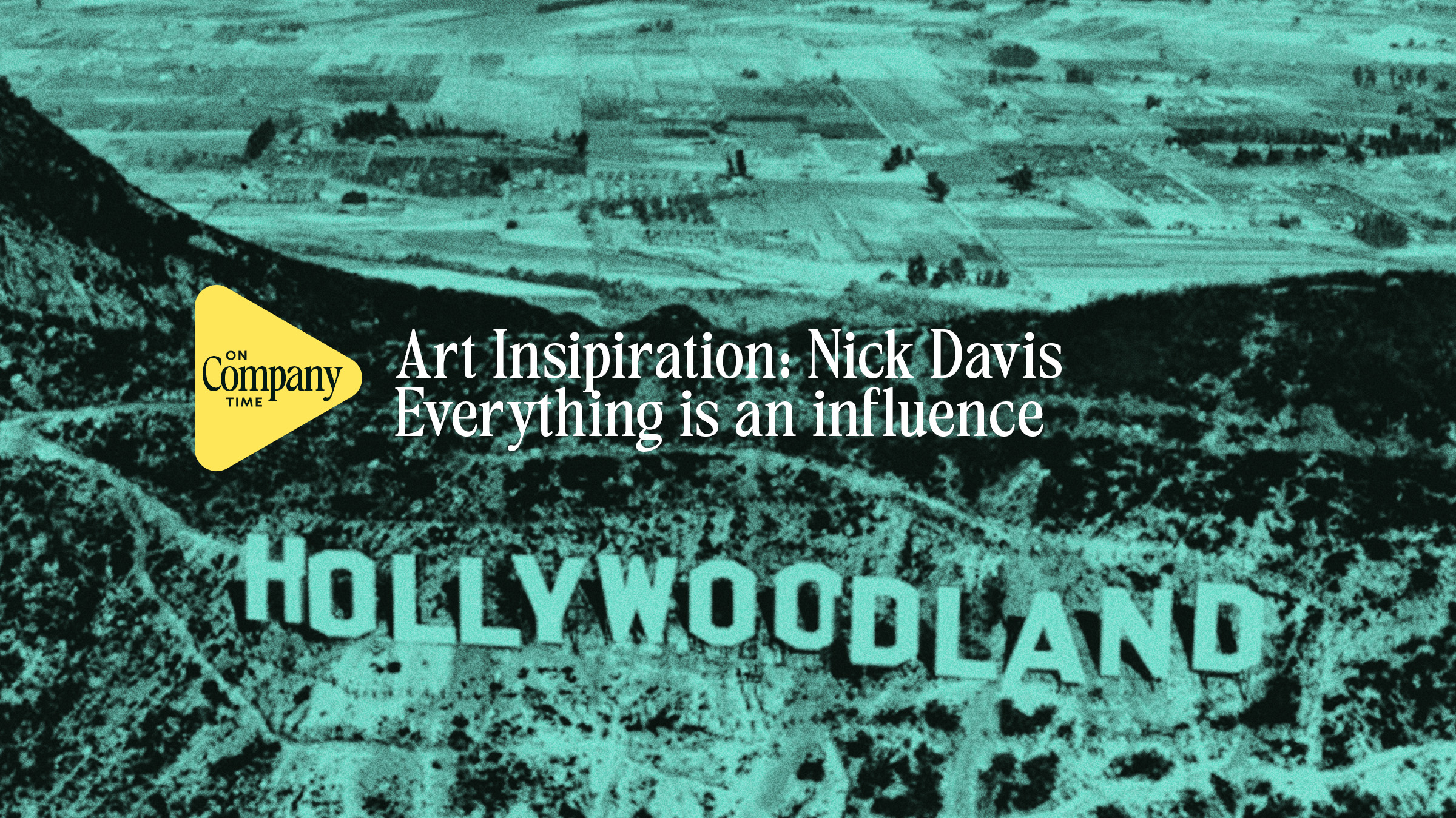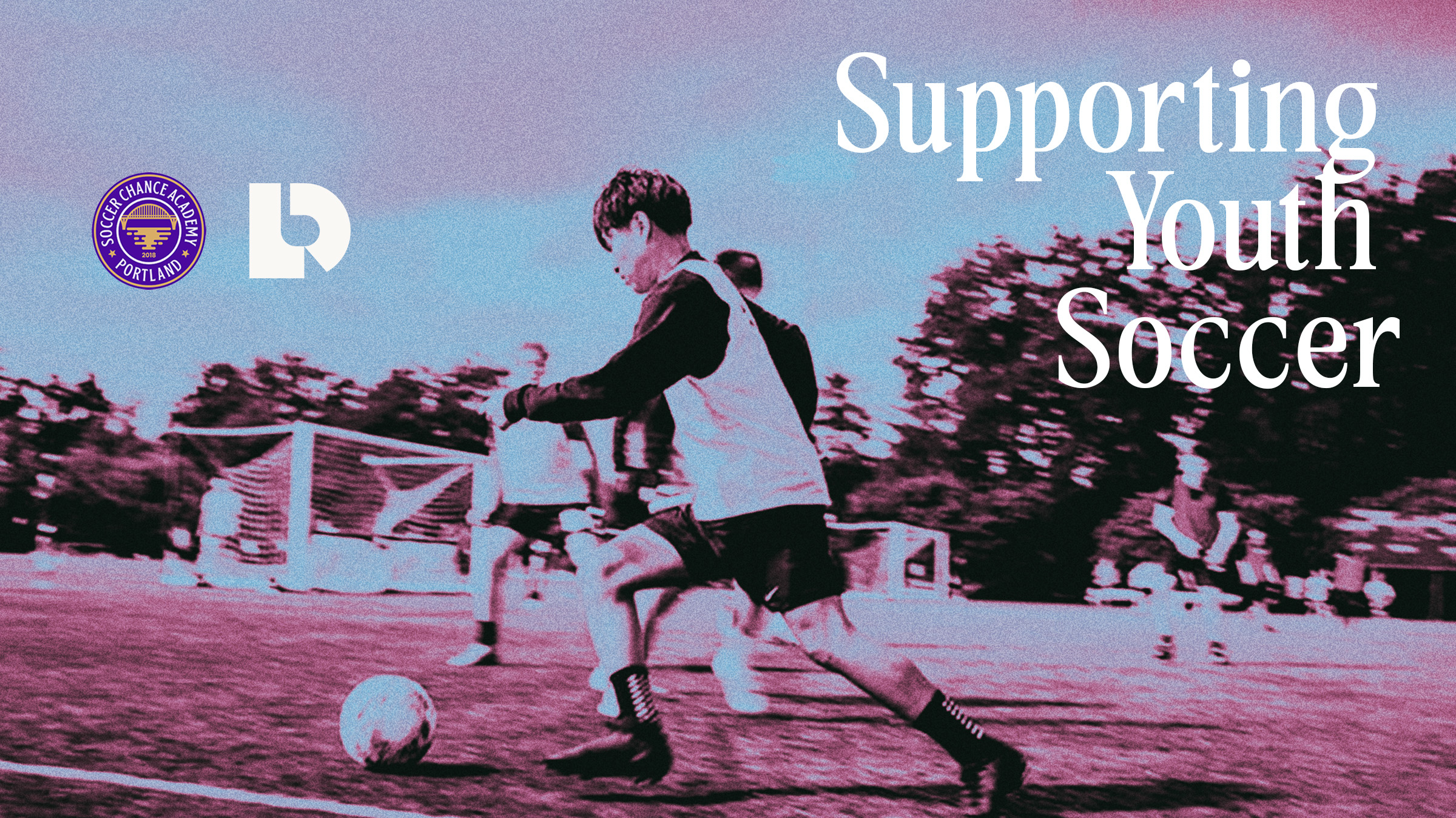On Company Time: Art Inspo with Nick Davis

When asked who influences his editing, Nick Davis isn’t just drawing from your run-of-the-mill influences — he’s drawing from a lifetime of experience shaped by mentors, misfires, and the many corners of post-production. From dubbing VHS tapes in reality TV to cutting high-profile trailers in Los Angeles, and now shaping powerful campaigns in Portland, his approach is less about following a formula and more about chasing instinct, story, and soul. In this reflection, Nick also traces the artists who helped spark his love for the craft — from Kubrick to Lynch to Woollen — and how a career built on scrappy beginnings, curiosity, and community has shaped the editor he is today.

Short answers:
Stanley Kubrick. Real, genuine artistry in cinema. Though a terrible, reclusive human.
David Lynch. He is the reason I moved to LA. He is the reason I got into filmmaking as a living. He is the reason I got into meditation. He is, was, and always will be the G.O.A.T.
Quentin Tarantino. Without Quentin, I don't think I would have ever tried to make a movie. He was the spirit of indie filmmaking I needed to see as a teenager.
Darren Aronofsky. A brilliant experimental mainstream filmmaker. But, his Montana Meth ads showed me how powerful advertising can be.
Mark Woollen. His trailer shop had a big influence on how I edit trailers.
The Substance. Best edited film of 2024, IMO.
Longer answer (you caught me on a day I have time):
I started my career in post-production as a PA on a reality TV show, dubbing VHS tapes and driving them to producers around LA so they could watch the dailies at home. I realized that reality TV worked like a machine, and the editors were cogs in that machine. Soldiers answering the notes of the producers, who would be the generals in this metaphor. This is not what I was looking for. After the season ended, I decided to apply for a PA job at a post house. Until that point, I was not aware of the world of commercial post-production. I got hired by Filmcore and worked as a post PA in the ritzy world of commercial post in Santa Monica. After 8 months, being the only person at the lunch table with equal movie knowledge to the latest editor to join the company, a British man named Nicholas Wayman-Harris (known for editing some of the bigger music videos in England), I was soon made his assistant.
Nicholas Wayman-Harris was my editor, but he was also my mentor. We worked long hours, and when we weren't working, I spent my time editing no-budget things on the side. There seemed to be an endless supply of those in LA at the time. Nicholas edited a lot of commercials and music videos over the 4 years we worked together. I sat behind him most of the time, doing AE work that helped to make our duo shine, or just watching him work and taking in the processes of how he was able to edit so quickly. I watched him work a room, and after a couple of years, I was working the room, interfacing with clients while Nicholas worked his magic. After 4 years of working with Nicholas, I was being prepped as the next young up-and-comer at Union Editorial. It was then that I decided I wanted to edit trailers, and I became a trailer assistant at Ignition, Union’s sister company and trailer shop.
At Ignition, we worked in a bullpen, checking items that needed to get done off a board. It was mechanical and horrible; the silver lining was that trailer editing was competitive, so even if you were an assistant editor, you could edit 30-second TV spots in hopes of getting noticed. It was during these scrums that a creative director named Goktug Sarioz took a liking to me, passing me lots of assignments. Goktug would become a huge influence while I learned the trailer world ropes.
After 6 months, I couldn’t stand the bullpen process, and I went back to Union, where I was put to work editing low-budget trailers with Jijo Reed. What we became was a two-person trailer editing division. It was during this time that I started to come to grips with the editing process. I learned how to be scrappy while looking at the edit as a sequence of steps - the first edit didn’t have to be right, getting the edit close was good enough. Once it is close, then we can get it right. We were doing so well that I got called back to Ignition a year later to work as a full-blown trailer editor, working on huge campaigns. In retrospect, what made me stand out as a trailer editor was the way I came up with outlandish ideas. Goktug loved this.

But the trailer world is rough, and it burned me out. I moved to Portland and found myself in Joint Editorial as an assistant editor once again. Apparently, even editing trailers on the Game of Thrones campaign meant nothing in the commercial world. After 6 months, an opportunity to edit a pitch came up. Pitches, in a way, are the trailers of the commercial world, and I felt right at home. The creatives looked at me, my Jijo and Goktug influences, and just like that, I put my assistant days behind me.
At this point, I think Hal Curtis at Wieden+Kennedy taught me the most about advertising. I will forever be grateful to him. Peter Wiendesmith challenged me and had faith in me. In turn, I challenged him. We taught film high school classes together through Caldera. Caldera is a non-profit organization founded by Dan Wieden that gives young people “access to the explosive power of creativity.” I had the opportunity to work there as a counselor for a few years, and in all fairness, those kids had a huge influence on me and the future of how I approach work. Knowing that what we do influences the world so much, it became even more important for me to do as little damage as possible when taking on work.
In 2019, I became a freelancer. Through an old producer friend, I got in touch with Bill Davenport, whom I had worked with quite a bit while at W+K. He was now running the show at Apple. He set me up with their Head of Post, Janie Ford, and I was off and running in the freelance world. By this time, a few of the creatives I had worked with at W+K were working at Google, and they hooked me up with Lucky Day.

This is all a long way of saying I am not a product of my influences as much as I am a product of my experiences. I have done every form of editing, and I pay attention to the high-end media: movies, movie trailers, TV shows, commercials, and music videos. I want to know how they work, how they tick, what I learn because they have moments, ideas, suggestions, techniques that I can bring into my own work. I follow my gut, or the gut of the director or creatives I am working with, and throughout the process, l will look to relevant media to help me solve a problem; as such, all relevant media is an influence.
Check out Nick's work here!
